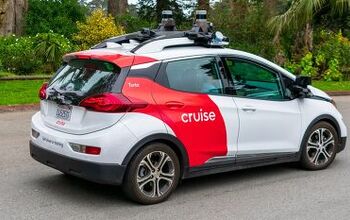Hyundai Dropping Job-Loss Protection
Now that the economy is recovering and Hyundai has a new generation of more upscale offerings on its dealers’ lots, the automaker’s job-loss-protection program is going away, reports Automotive News [sub]. The one-year protection will be available on Hyundais purchased through the end of this month, but as sales boss Dave Zuchowski puts it
We actually see the elimination of the job-loss program as a sign of a recovering economy and we had never anticipated that this would be an enduring program. We welcome the day when it’s really no longer as relevant in the showroom or as required in the marketplace.
The job-loss-protection element of Hyundai’s Assurance program was widely lauded back in the gloomy days of early 2009 as the perfect recession-era marketing gimmick. Financial uncertainty was rampant, job loss was common, and guaranteeing a repo-free experience in case you lost your job was a good way to keep people buying, and indeed, the recession years were good to Hyundai. The program even garnered so much attention that Hyundai’s erstwhile marketing boss, Joel Ewanick, received AdAge’s “Marketer of the Year” award, even though Assurance’s job-loss-protection scheme was simply a rebadge of Walkaway, an existing insurance option.
And ultimately, it seems that the program was probably better at getting media attention than actually protecting huge numbers of laid-off Hyundai buyers, as the number of consumers actually returning their vehicles under the program were low (350 as of this week), and Hyundai’s recent sales momentum actually dates back to the introduction of its 10-year, 100k mile warranty.
More by Edward Niedermeyer

































Comments
Join the conversation
It was a marketing campaign, just like the coupons for detergent on your countertop. Those expire. So do offers from Hyundai, Toyota, Ford, GM, etc.
With what just happened in Japan, more people around the world could get layedoff depending on the industry. While the economy is showing signs of recovery, I am not sure that this is the best time because problems could be coming back very soon. I think this is the wrong time to make this move. Wait till the fallout from the tsunami is realized, then make a decision.
Of course they are getting rid of this policy, they can't make money from it anymore, it has lost its value. It was never about "helping people" in the first place. I was terribly mislead by those warm and fuzzy TV ads.